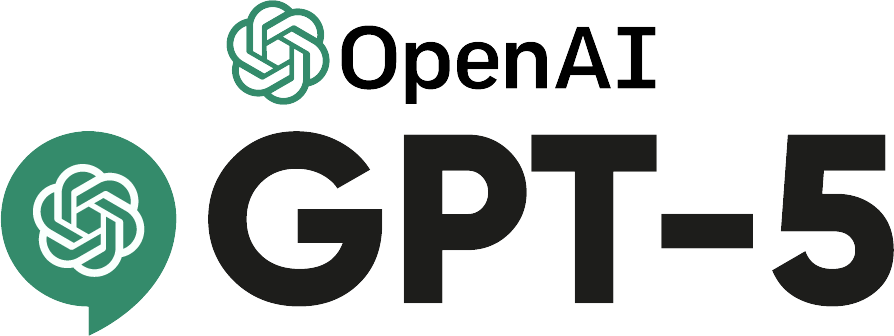OpenAI Unveils GPT-5: PhD-Level Reasoning Elevates Generative AI

Introduction: A New Milestone in Generative AI
OpenAI has officially launched GPT-5, positioning it as the most advanced general-purpose AI model to date. Claiming "PhD-level" reasoning and domain expertise, GPT-5 has already ignited major discussion across tech, academia, and industry. This development promises significant enhancements in coding, research, education, and more, potentially redefining what businesses and consumers expect from AI-powered systems[1][2][4].
Advanced Capabilities: What Sets GPT-5 Apart
-
PhD-Level Expertise: OpenAI CEO Sam Altman heralds GPT-5 as “the first time… our mainline models have felt like you can ask a legitimate expert, a PhD-level expert, anything”[1].
-
Multi-Modal Integration: GPT-5 processes text, images, and voice in a single architecture, marking a leap from GPT-4’s capabilities[2].
-
40% Reasoning Improvement: Benchmarks show roughly 40% gains in complex reasoning across scientific problem-solving, autonomous coding, and data analysis[2].
-
On-Demand Software Generation: Early reviews indicate that GPT-5 can generate entire pieces of working software, vastly improving productivity for developers[1].
-
Edge Deployment: Versions like "mini" and "nano" are optimized for smartphones and home devices, widening accessibility[2].
Industry Impact and Competitive Dynamics
-
Enterprise Adoption: Major companies are integrating GPT-5 for workflow automation, customer interaction, and technical analysis across healthcare, education, and business[2].
-
Competitive Race: The release has intensified competition, pushing rivals Anthropic and Google to accelerate updates to their own generative AI models[2][4].
-
Transforming Workflows: GPT-5’s context-aware and planning abilities drive process automation at scales previously unachievable, increasing both efficiency and accuracy in professional settings[2].
Reception: Praise, Caution, and Realities
-
Expert Enthusiasm: Developers, researchers, and early adopters praise its advanced coding and mathematical skill, making it ideal for high-stakes technical work[1][2].
-
Persistent Flaws: Despite its strengths, some warn of "factual mistakes, basic reasoning flaws, and spelling errors," signaling ongoing limitations[2].
-
Human-Like Learning Still Elusive: Altman cautions, "GPT-5 still lacks the ability to learn on its own,” underlining the distance between current AI and true general intelligence[1].
Conclusion: Future Prospects and Perspectives
The introduction of GPT-5 marks a watershed for both generative AI and its everyday applications. Experts predict this leap will accelerate global adoption and spawn new tools for science, industry, and education. As rivals race to close the gap, users can expect more sophisticated, context-aware models in the near future—while the challenge of building truly autonomous, learning machines remains unresolved[2][4].
How Communities View GPT-5: PhD-Level AI Goes Public
The main debate: GPT-5’s debut has prompted lively discussion on X/Twitter and Reddit’s major AI and programming subreddits, focusing on its claimed leap in reasoning, utility, and impact on jobs and education.
1. Enthusiasts and Early Adopters (≈40%)
- Many developers and researchers, including @sama (Sam Altman), tout GPT-5’s coding ability and advanced multi-modal features: “This is the closest AI has felt to a true expert in the room.” r/ChatGPT users share success stories of complex projects completed exponentially faster.
2. Skeptics and Critics (≈30%)
- Posts from r/artificial and X personalities like @garymarcus critique GPT-5’s "persistent flaws"—noting continued factual errors and limitations in world knowledge. Some say the upgrade from GPT-4, while meaningful, is more incremental than transformational.
3. Industry Professionals and Integration Focus (≈20%)
- Enterprise engineers and AI managers from r/MachineLearning discuss workflow integration, with many already testing GPT-5 for process automation, especially in healthcare and customer service. Interest is high, but they stress ongoing need for guardrails and human oversight.
4. Ethical, Societal, and Economic Concerns (≈10%)
- Commentators such as r/Futurology and X user @timnitGebru highlight issues of bias, job disruption, and the ethical implications of increasingly expert-like AI. Some debate whether "PhD-level" AI could further entrench misinformation if unchecked.
Overall Sentiment: Temporary excitement drives most conversations, balanced by sober calls for realistic expectations and prudent adoption. Notable experts and founders, including Sam Altman and Gary Marcus, play key roles in framing the strengths and weaknesses.